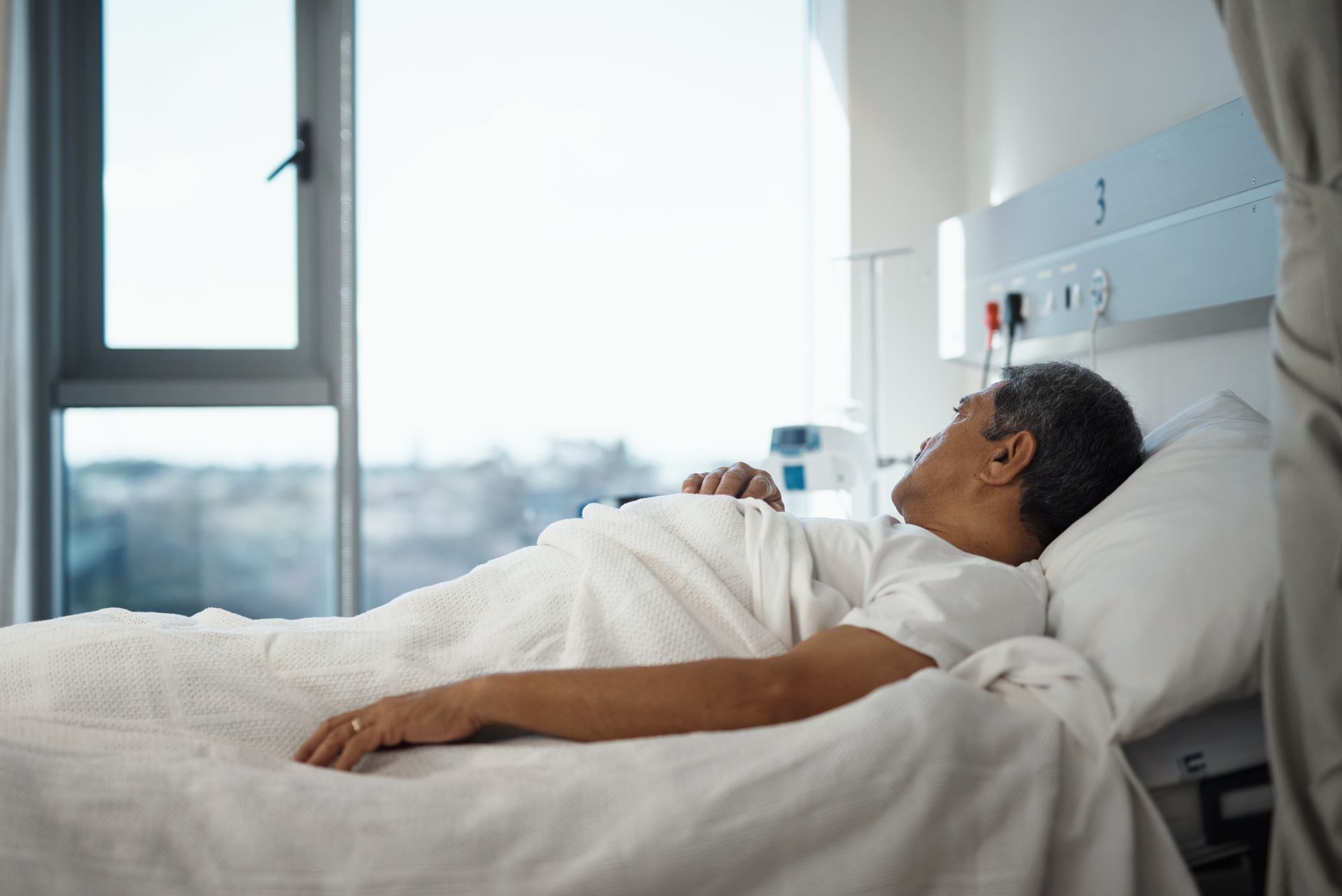Depression

Learn the Signs and Types of Treatment
If you’re in the hospital or have a chronic condition, you may feel sad or angry for a little while. This is normal—but sometimes the feeling doesn’t go away. If your feelings are ongoing and interfere with your daily life, you may have depression.
Depression can be harmful to your healing process—it can make recovery harder, hospital stays longer and readmissions more frequent. Talking to your doctor about depression could help your healing process stay on track.
Symptoms of Depression
Symptoms can be different for everyone and may include:
- Feeling sad or empty
- Low energy or motivation
- Loss of interest in family, friends, or hobbies
- Eating or sleeping too much or too little
- Feeling guilty, worthless or hopeless
- Problems with memory or attention
- Headaches or other pains with no known cause
- Abusing substances like drugs, alcohol, or tobacco
- Thoughts of death or suicide
- Feeling irritable, angry, agitated or restless (more common in men)
Remember—depression is treatable, and you’re not alone. If you have any of these symptoms, talk to your doctor as soon as possible.
Depression Is Treatable
Treating depression is different for everyone. Your doctor may recommend medicine, talk therapy, or a combination of both. Antidepressant medicines work to balance chemicals in your brain that control mood. Talk therapy provides treatment through conversation and problem-solving with a therapist.
Finding a good treatment plan can take time. Keep working with your doctor after you go home to find what best manages your depression.
Beyond Treatment: What You Can Do
In addition to doctor-recommended treatments, these tips may help you manage your depression:
- Exercise at least three days a week.
Physical activity creates mood-lifting chemicals. Schedule workouts with an exercise buddy.
- Think about what you eat and drink. For a healthy mind and body, eat more nutrient-rich foods and limit processed foods.
And avoid alcohol until your depression improves.
- Spend time with people.
Share activities or meals with a family member or
friend. Open up to loved ones about your depression and tell them how they can help.
- Postpone important decisions, like getting married or changing jobs. Stress can make depression worse. Focus on feeling better before making a life-changing decision.
- Keep learning about depression. You may find new ways to help you feel better.
Depression in Older Adults
Some causes of depression, like chronic conditions and major life changes, are more likely to affect older people. But depression is not a normal part of aging—and you don’t have to cope with it alone. Treatments can help you feel better. Share all your feelings and symptoms with your doctor.
Ask for Help
Depression happens for different reasons, including family history of depression, major life changes, trauma, having a chronic condition or medicine side effects. If you or someone you know is struggling, you can find free resources at nami.org.
For immediate help in a mental health crisis, you can contact the Suicide and Crisis Lifeline by calling or texting 988, or chat with a crisis counselor online at 988lifeline.org/chat.

